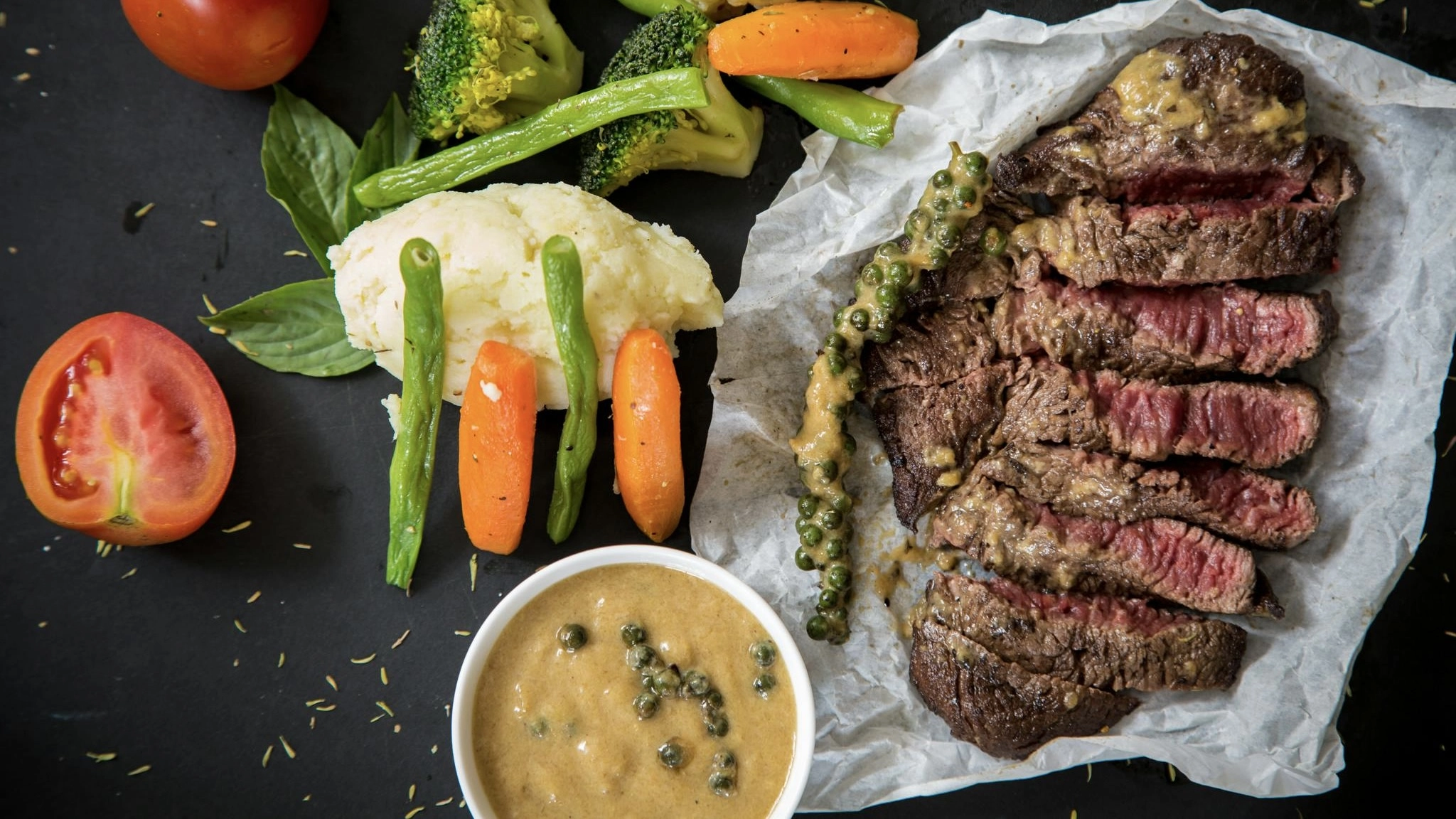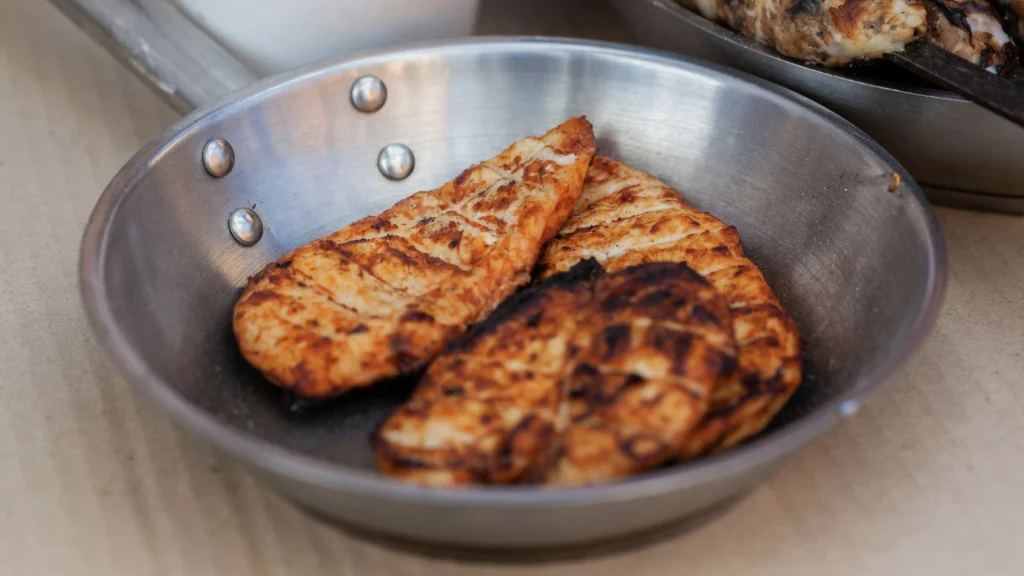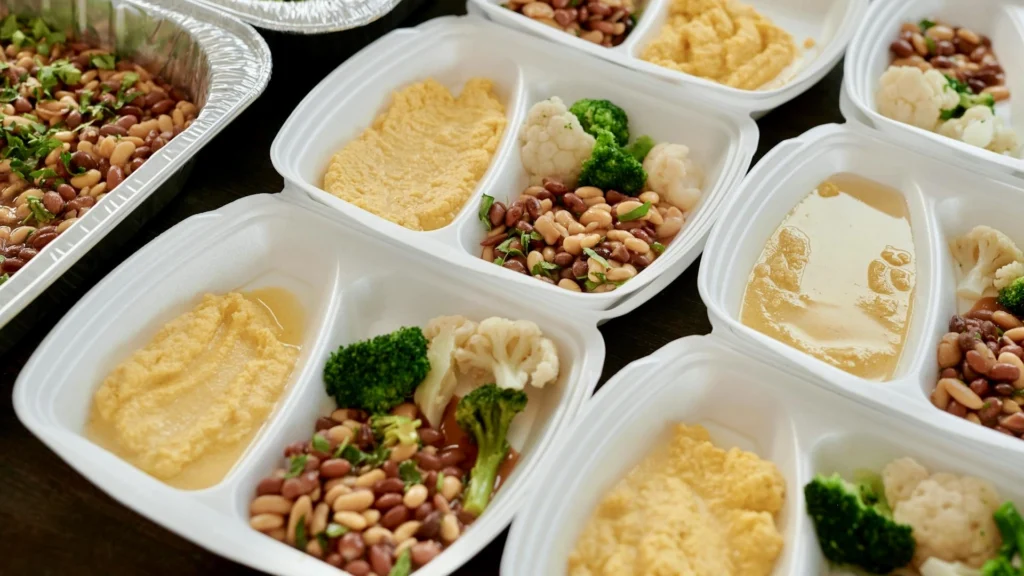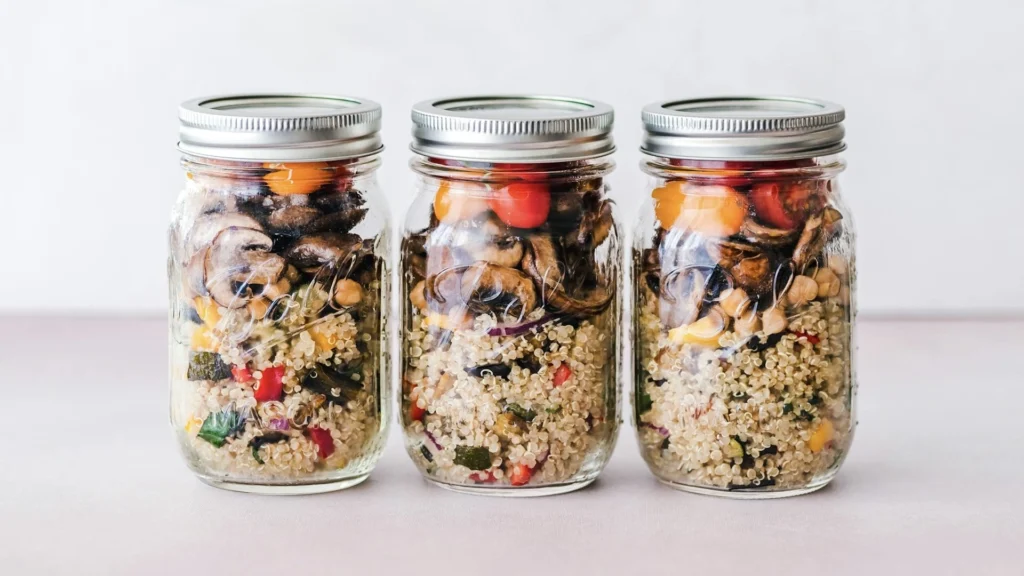High Protein Meal Prep: Easy Recipes, Tips & Benefits

There is no doubt that high protein meal prep is one of the golden keys to successful weight loss.
You should know by now that consuming meal preps is one of the most effective ways to maintain a healthy diet and stay on track with fitness goals. Whether you’re looking to build muscle, lose weight, or simply eat healthier, high protein meal prep can make a significant impact.
Protein is essential for muscle recovery, metabolism, and overall body function. Preparing high-protein meals in advance ensures you get the nutrients you need while saving time and money.
In this guide, you’ll learn everything about high protein meal prep—its benefits, best protein sources, meal prep ideas, and expert tips for long-term success.
The Science Behind High Protein Meal Prep
Why Protein is Essential
Protein is a fundamental macronutrient that plays a crucial role in muscle repair, metabolism, and overall body function. Unlike carbohydrates and fats, protein is composed of amino acids, which serve as the building blocks for muscle tissue, enzymes, and hormones.
Studies have shown that a high-protein diet can aid in muscle recovery, improve metabolic rate, and enhance satiety, making it an essential component of any meal prep routine. The thermic effect of protein—meaning the body burns more calories digesting it compared to fats or carbohydrates—also makes it particularly beneficial for those aiming to lose weight or maintain lean muscle mass.
Protein is a macronutrient made up of amino acids, which are vital for:
- Muscle growth and repair after exercise.
- Boosting metabolism due to its high thermic effect.
- Keeping you full longer, reducing cravings and unnecessary snacking
How Much Protein Do You Need?

Determining the right amount of protein intake depends on factors such as age, weight, activity level, and fitness goals. The general recommendation for sedentary individuals is around 0.8 grams of protein per kilogram of body weight, while those who are physically active or looking to build muscle should aim for 1.2 to 2.5 grams per kilogram.
For example, an individual weighing 70 kg (154 lbs) who engages in regular exercise should target a daily protein intake of approximately 84 to 140 grams. Consuming an adequate amount of protein throughout the day, rather than in one large meal, ensures sustained muscle protein synthesis and better nutrient absorption.
The recommended daily protein intake varies based on activity levels:
- Sedentary individuals: 0.8g per kg of body weight
- Active individuals: 1.2-2.0g per kg
- Athletes & bodybuilders: 2.0-2.5g per kg
For example, if you weigh 70 kg (154 lbs) and exercise regularly, you should consume around 84-140g of protein daily.
Where Do You Obtain Protein?
Choosing high-quality protein sources is key to effective meal prep. Animal-based options like chicken, fish, lean beef, eggs, and dairy products provide complete proteins, containing all nine essential amino acids.
Plant-based alternatives such as lentils, chickpeas, quinoa, and tofu can also contribute significantly to daily protein intake, especially when combined strategically to form complete proteins. By incorporating a variety of protein sources, meal preppers can ensure a balanced and nutrient-dense diet that supports muscle maintenance, weight management, and overall health.
Key Benefits of High Protein Meal Prep
Supports Muscle Growth & Recovery
A high protein diet ensures your muscles recover efficiently after workouts, helping you gain strength and lean muscle mass.
Aids in Weight Loss
Protein increases satiety and prevents overeating. Studies show that higher protein intake can help with fat loss and weight management.
Saves Time & Money
Batch cooking your meals reduces the need for last-minute takeout or unhealthy snacks.
Helps Control Portions
Portioning meals in advance prevents overeating and unnecessary calorie consumption.
How to Start Your High Protein Meal Prep Routine

Here are some of the major techniques when it comes to preparing your high protein meals. It’s best to incorporate all of the strategies for maximum ideal results.
Choose your meal prep strategy
- Batch cooking (prepare large portions and store them)
- Pre-portioning (divide meals into containers for easy grab-and-go)
- Make-ahead freezer meals (store meals for long-term use)
Get the right containers
- Glass containers (best for reheating and freshness)
- BPA-free plastic containers (lightweight and travel-friendly)
- Mason jars (ideal for high protein salads and overnight oats)
Plan your meals in advance
- Aim for 30-40g of protein per meal
- Include a balanced mix of protein, carbs, and healthy fats
Best High Protein Foods for Meal Prep
Animal-Based Proteins
- Chicken breast (31g protein per 100g)
- Lean beef (26g per 100g)
- Salmon (25g per 100g)
- Eggs (6g per egg)
Plant-Based Proteins
- Lentils (18g per cooked cup)
- Chickpeas (15g per cup)
- Tofu (10g per 100g)
- Quinoa (8g per cup)
High Protein Breakfast Meal Prep Ideas

If you are looking for super energizing breakfast ideas, don’t go any further because here are some of my favorite foods to keep the ball rolling.
Overnight Oats with Greek Yogurt & Protein Powder
- ½ cup oats, ½ cup Greek yogurt, 1 scoop protein powder, berries
Egg Muffins with Spinach & Feta
- 6 eggs, 1 cup spinach, ½ cup feta, baked in muffin tins
High Protein Smoothie Prep
- Blend protein powder, banana, almond milk, and peanut butter
High Protein Lunch Meal Prep Recipes
Grilled Chicken & Quinoa Bowls
- 150g grilled chicken, ½ cup quinoa, roasted veggies
Salmon & Roasted Vegetables
- 120g baked salmon, sweet potatoes, broccoli
Plant-Based Power Bowls
- Tofu, chickpeas, quinoa, avocado, tahini dressing
High Protein Dinner Meal Prep Ideas
Do not end your day with an empty stomach. It ain’t the right way to lose weight (or gain muscle) if that’s your trip. Try filling up your belly with this heavy duty meal preps.
Baked Cod with Garlic & Asparagus
- Cod fillet, asparagus, garlic butter sauce
Lean Beef Stir-Fry with Brown Rice
- 150g lean beef, bell peppers, soy sauce, brown rice
Tofu & Vegetable Curry
- Tofu, coconut milk, chickpeas, curry spices
High Protein Snacks to Prep in Advance
Hard-Boiled Eggs & Nuts
Peanut Butter Protein Balls
Hummus & Veggie Packs
Meal Prepping for Different Fitness Goals
For Muscle Gain
- Increase portion sizes & include healthy carbs like sweet potatoes and brown rice
For Weight Loss
- Focus on lean proteins like chicken and fish with fiber-rich vegetables
For General Health
- Balanced meals with a variety of protein sources
Storing and Reheating High Protein Meals Safely
- Refrigeration: Meals last 3-5 days
- Freezing: Up to 3 months
- Reheating: Use a microwave or oven at medium heat to retain nutrients
Common Mistakes to Avoid in High Protein Meal Prep
- Overloading on protein shakes instead of whole foods
- Ignoring portion control
- Adding too many high-calorie sauces
Conclusion: How to Maintain a Successful High Protein Meal Prep Routine
High protein meal prep is a powerful tool to save time, eat healthier, and achieve your fitness goals. By planning ahead, choosing the right ingredients, and using smart storage techniques, you can set yourself up for long-term success.
Start small, experiment with different high protein recipes, and stay consistent. The key to success is making meal prep a habit that fits your lifestyle.
FAQs About High Protein Meal Prep
How much protein should I include in each meal?
Aim for 20-40g per meal depending on your goals.
Can I do high protein meal prep on a budget?
Yes! Affordable options include eggs, beans, canned tuna, and tofu.
What are the best meal prep containers?
Glass containers for freshness, plastic for travel, mason jars for salads.
Can I meal prep without a fridge?
Yes, opt for dry-storable protein snacks like jerky, nuts, and protein bars.
How can I keep my high protein meals interesting?
Rotate protein sources, experiment with spices, sauces, and different cooking methods.
Would you like any additional modifications or sources added?
